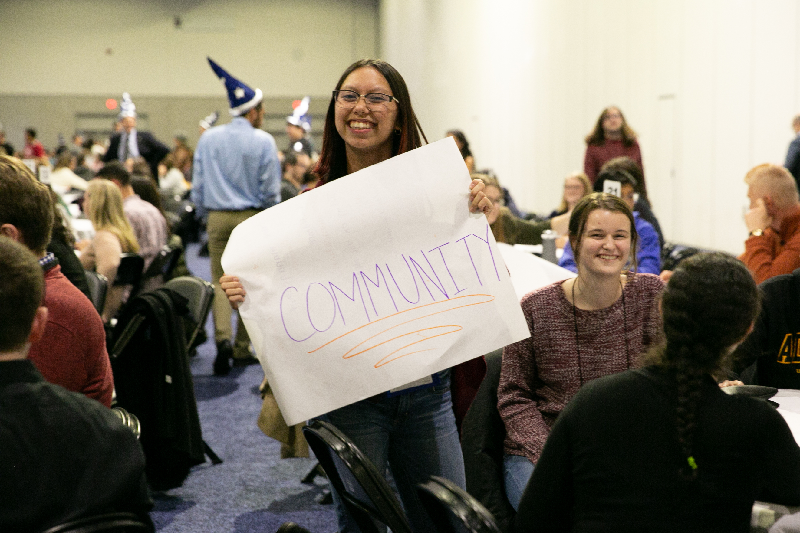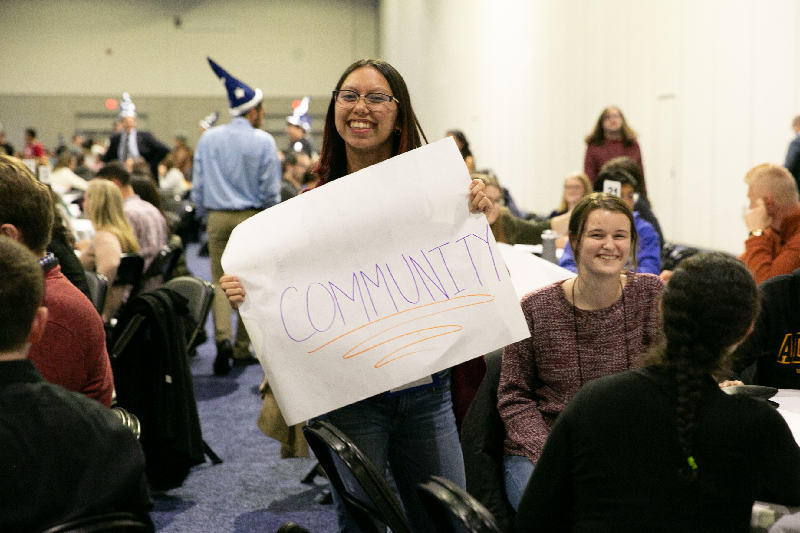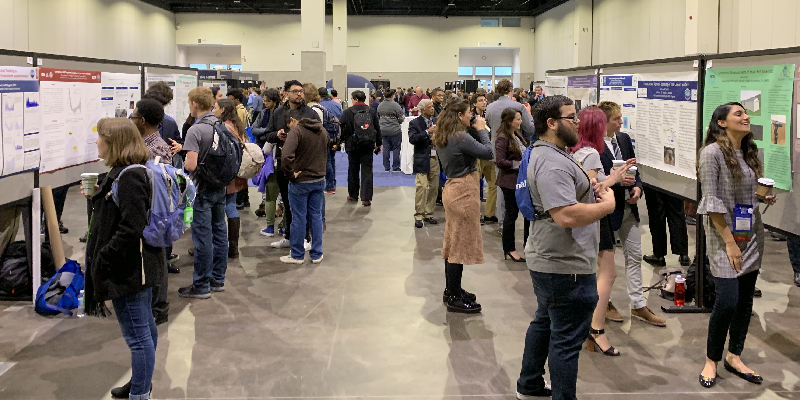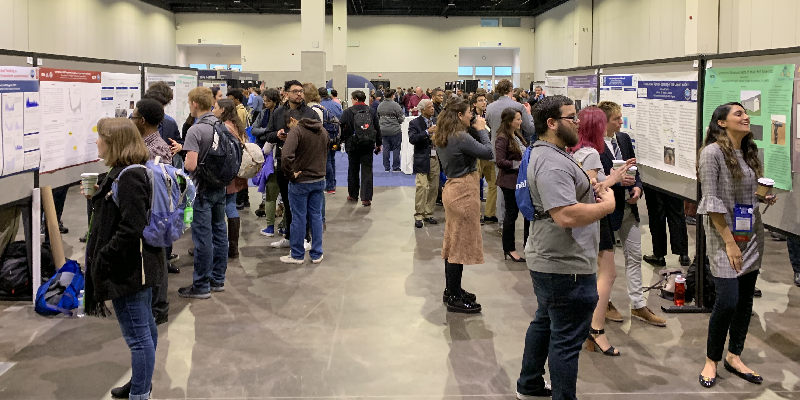Undergrad Research Teaches Skills and Confidence
At PhysCon, no one is shy about their physics fandom. Attendees at this meeting for undergrad physics majors proudly wear T-shirts emblazoned with equations and physics puns like “I don’t give a flux.” Some students even dye their hair blue for the event.
This enthusiasm carries over to their research projects. More than 300 students took part in the poster sessions at this year’s meeting, held in mid-November in Providence, Rhode Island. Participating in research has become extremely common for undergrads, with many colleges now requiring it. And students say it has a big influence on their experience. “[It’s] what made my degree, and it's what makes me feel like I belong in physics,” says Aric Moilanen, a senior at Middle Tennessee State University.
Many students find research intimidating at first. Moilanen recalls his discomfort with the journal articles his mentor recommended for background. “It’s terrifying reading through those papers,” he says. “You’re like, ‘This is really interesting. [But] I don’t understand any of it.’” Senior Wyatt Campbell of Angelo State University (ASU) in Texas felt equally baffled attending nuclear physics group meetings. “They were saying all of these particle names, all Greek to me. I didn’t know any of them,” he says.
Yet students often praise their research mentors for patiently explaining things and continuously providing reassurance and support. In fact, when mentoring undergrads, instilling confidence is perhaps as important as teaching lab skills, according to many students. Moilanen says that he considered switching out of physics two years ago. But his research mentor’s support helped him realize that he had both the ability and the interest needed to stick with physics.
The number one lesson students learn from research is that experiments never go according to plan, and many feel they develop problem-solving skills as a result. “When you design your own work, you’re going to encounter problems,” says senior Emily Reardon of Bridgewater State University in Massachusetts. “You have to, on the spot, kind of figure out what needs to be solved.” Sophomore Troy Long of ASU agrees. “Everything breaks,” he says. But he thinks that’s the fun part because he enjoys fixing things. He says research is like a personalized training program for solving problems on your own.
While experiments can be challenging, time management is the difficulty students complain about the most. “Balancing classwork with research was the main challenge I had,” says University of Maryland, College Park, senior Ruhi Perez.
Several students say they are surprised by how much physics they learned in a short time, and they are more confident. Junior Brina Martinez of the University of Texas Rio Grande Valley says she improved her ability to speak about her science as her research progressed. “I’m not as shy to talk to people as I was before,” she says. Perez also feels stronger as a scientist after the experience. “I’m more confident about conducting or designing experiments,” she says. She feels that gaining confidence was one of the main rewards for her.
PhysCon attendees are passionate about the value of undergrad research as part of their education. “No matter how much you study and do your homework, if you can’t apply it to real life, you won’t get very far,” says Lauren Bryan of Embry-Riddle Aeronautical University in Arizona. Perez puts it another way: “In school you learn about what happened in the past, but in physics [research] you want to try to discover new things.” Gretchen Schowalter of Lewis & Clark College in Oregon is not yet involved in research, but she thinks it’s important. “It’s just kind of beautiful to be with something for so long and to really see it through,” she says. She finds many areas of research fascinating, but she doesn’t yet know which one she’ll choose. “I'm hoping that it’ll find me.”
–David Ehrenstein
David Ehrenstein is the Focus Editor for Physics.







